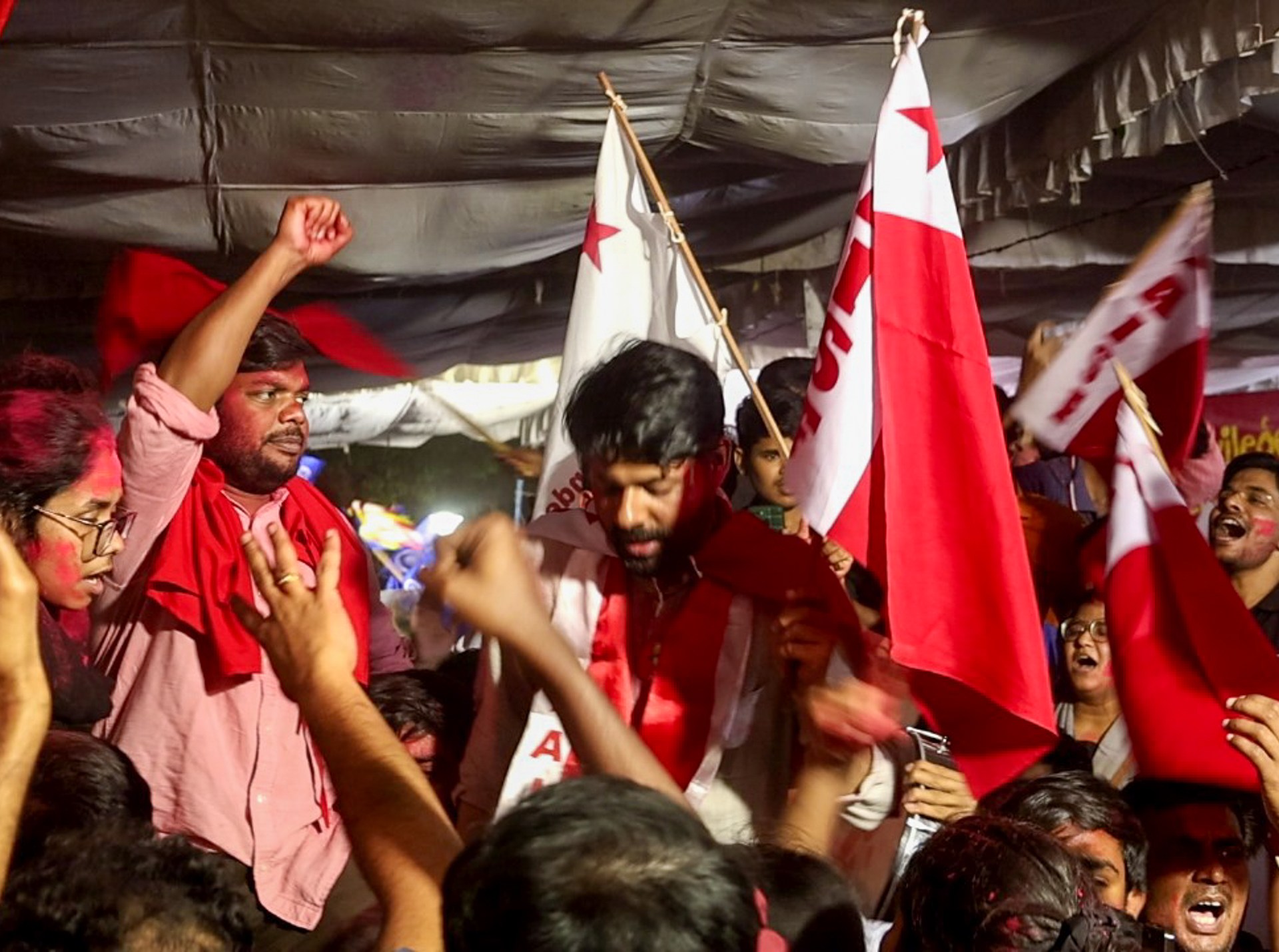Localizing SDGs Means Truly Empowering Citizens — Global Issues
KATHMANDU, Nepal, Apr 18 (IPS) – The Future We Want was the groundbreaking outcome of the Rio+20 Summit, the summit, held in 2012, where the idea of Sustainable Development Goals (SDGs) was first conceptualized.
Amid the unfolding of several global crises, where geopolitics mixes with structural unbalances that are putting at risk the long-term viability of planet Earth, isn’t really high time we got serious about our future?
Can the SDGs be turned not just in a tool for global pressure and advocacy but also a planning tool that involves, mobilizes and empower the people? There is still so much to be done and the levels of urgency can’t be greater.
According to the recently released Asia and the Pacific SDG Progress Report 2023, “the region will miss all or most of the targets of every goal unless efforts are accelerated between now and 2030”.Can localizing the SDGs in the Asia Pacific region and also elsewhere, change the status quo?
In theory, localizing the goals can make a huge difference but we need to ensure that such process means the truly involvement and engagement of the citizens.
A recent online workshop tried to assess where we stand following the Rio+20 Summit whose ultimate scope was, twenty years after the 1992 Rio Earth Summit, to relaunch humanity’s commitment towards a different model of development.
One of the key points that emerged in the event, which also saw the participation of Paula Caballero, one of key architects of the SDGs, is the fact that these goals still remain a powerful but mostly unleveraged tool for change.
While it is essential to mobilize more funding for their implementation, the Secretary General is rightly pushing with the idea of an SDG Stimulus— a missed goal to see the SDGs as a tool to radically re-think the way governance works.
The best intentions and the many, often overlapping efforts now at play in terms of localizing the SDGs, do not even aim at such scope of ambition. At the best, localizing the SDGs is about planning local actions rather than new ways of governance.
Moreover, the UN is struggling to come up with anything effective at operational level. For example, the Local 2030 Platform remains still an unfinished job despite its ambitious objectives.
A December 2021 analysis about ways to strengthen it, authored by the Stockholm Environment Institute, did indeed confirm the need to an all-encompassing platform that brings the SDGs closer to the people.
Still, there is so much to be done to ensure that Local2030 Platform can become a catalyst for change. Unfortunately, we are still far from a global mechanism capable of turning the goals in a such a way that the people can use them as a tool of participation and genuine deliberation. The scattered, fragmented and often ineffectual way the UN System works certainly does not help the cause.
A similar initiative, the SDG Acceleration Actions, is supposed to be an accelerator of SDG implementation that is “voluntarily undertaken by governments and any other non-state actors – individually or in partnership”.
In the Asia Pacific region, we can find also a new partnership, ESCAP-ADB-UNDP Asia-Pacific SDG Partnership mostly focused on research creation and knowledge delivery.
As important as they are, such initiatives lack linkages and risk becoming not only overlapping but also a duplication to each other. Could local bodies do the job and truly democratize the SDGs?
Such entities, both local and regional governments (LRGs) have a huge role. For example, the United Cities and Local Governments, a powerful advocacy group based in Barcelona, is undoubtedly breaking ground in this direction.
With now a much user-friendly web site and with a new catchy messaging, UCLG is a global force pushing strong towards empowering local governments and cities so that they can truly take the lead in matter of localizing the SDGs. UCLG also runs the most updated database on local efforts to implement the SDGs, the Global Observatory on Local Democracy and Decentralization or GOLD.
For example there are the “Voluntary Subnational Reviews (VSRs), considered as “country-wide, bottom-up subnational reporting processes that provide both comprehensive and in-depth analyses of the corresponding national environments for SDG localization”.
In addition, the Voluntary Local Reviews could be even more impactful tools as they assess how municipalities, small and big alike, are implementing the SDGs. In Japan, the Institute for Global Environmental Strategies, IGES, is doing a great deal of work to also track the implementation of the SDGs locally with its online Voluntary Local Review Lab.
Still there is a disconnection among all these initiatives despite the fact that UCLG has been championing the Global Task Force of Local and Regional Governments. As an attempt at bringing together a myriad of like-minded groups run by mayors and local governments around the world, it is a praiseworthy undertaking.
While it is essential to create coherence and better synergies between what the UN is trying to do and the actions taken by mayors and governors globally in the area of SDGs localization. But it is not enough. There is even one bigger and more worrying disconnection.
Even if local authorities are truly given the resources and powers to shape the conversation about the implementation of the SDGs and back it up with actions on the grounds, we are at risk of forgetting those who should be truly at the center of the debate: the people.
Localizing the SDGs should mean truly giving the people the voice and the agency to express their opinions and ideas rather than become an exclusive fiefdom of local politicians.
Finding ways to truly allowing and enabling people to take central stage in implementing the SDGs implies a rethinking of old assumptions where local officials, elected or not, have the sole prerogative of the decision making. This is fundamentally a question of reinventing local governance and make it work for and by the people.
But it is easier saying it than doing it!
It is a real conundrum because, if it is certainly possible to come up with symbolic initiatives, all tainted by forms of fake empowerment, a totally different thing is to devise new forms of genuine bottom up, inclusive governance indispensable to achieve the SDGs.
The Global Platform in its Vision 2045 refers to genuine and better democracy practices leading the planning of local governments.What are they going to do to translate these words into real deeds?
There are other ways to involve people in the global discussions but they are just tokenistic. For example, UNESCAP recently organized in Bangkok its 10th Asia-Pacific Forum on Sustainable Development (APFSD).
It is an important event and the regional commission has been striving to be more inclusive and each year the summit also counts with a People’s Forum and even a Youth Forum. The problem is that, while integral part of the discussions, they are officially considered just as “associated and pre- events”.
Changing the protocol and the way the UN works is not easy but why should we keep holding such important engagements as just nice “add-ons”?
Even with the release of comprehensive Call to Action by the youths of the region before the APFSD summit, what real difference are their opinions and voice making? As simplistic as it sounds, much more should be done in making these conclaves really inclusive even though the real game won’t happen in these fora but at grassroots levels.
It is there where the challenge of localizing the SDGs must be won. It is where citizens really need to be listened to and where their power should be exercised.
In imaging the future, we really want, is to put citizens at the center of it. And it is high time we truly democratized the SDGs. After all, there is no, better form of localizing them.
Simone Galimberti is the co-founder of ENGAGE and of the Good Leadership, Good for You & Good for the Society.
The opinions expressed in this article are personal.
IPS UN Bureau
© Inter Press Service (2023) — All Rights ReservedOriginal source: Inter Press Service
Check out our Latest News and Follow us at Facebook
Original Source







